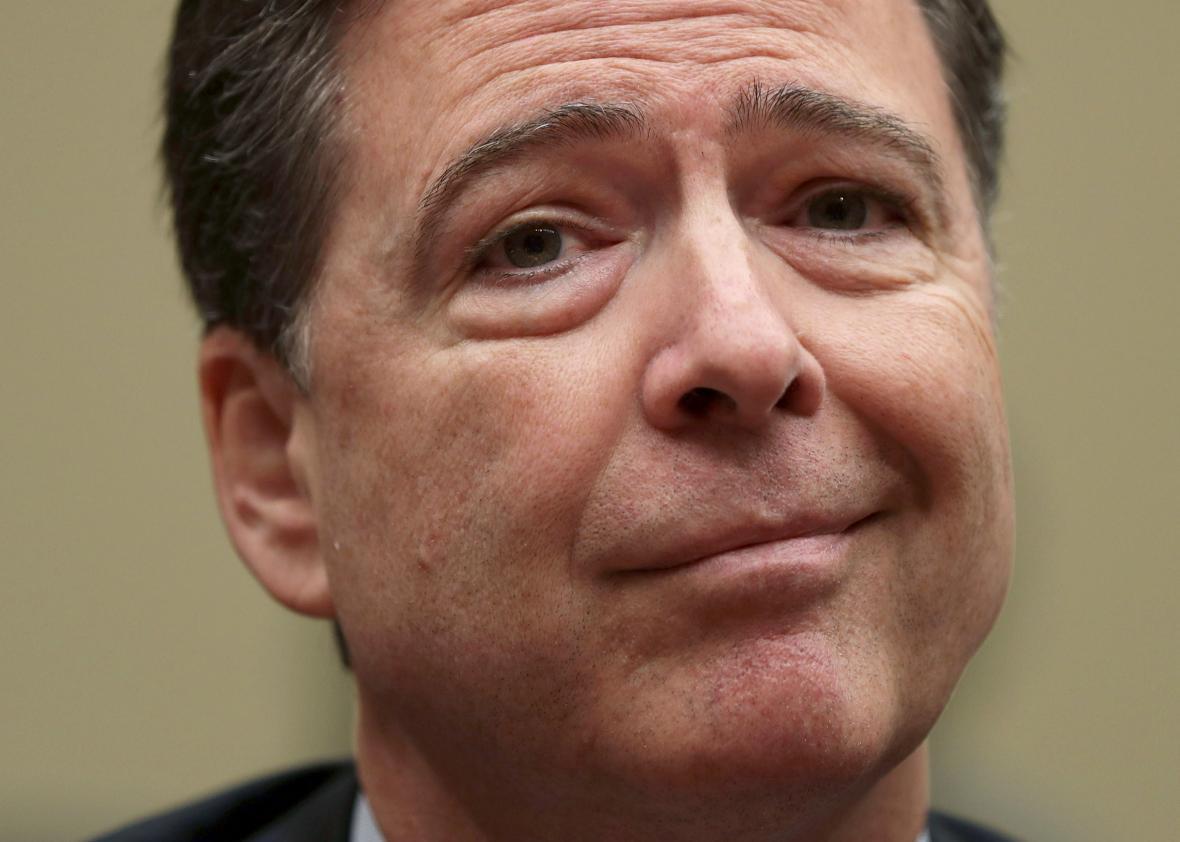Everyone seems to have been against FBI Director James Comey’s decision to notify Congress about the discovery of new emails that could be related to the probe into Hillary Clinton’s personal server. Attorney General Loretta Lynch and Deputy Attorney General Sally Yates were just two of the senior officials who apparently warned Comey that making the news public would go against the Justice Department’s standard operating procedure. Why? “We don’t comment on an ongoing investigation,” a Justice Department official tells the Washington Post. “And we don’t take steps that will be viewed as influencing an election.”
Despite that strong advice from senior officials, Comey decided to inform lawmakers about the newly discovered emails. “He is operating independently of the Justice Department. And he knows it,” a Post source said. Couldn’t Lynch and Yates have done more to prevent Comey from speaking up? Well, Justice Department officials tell CNN that the two top officials couldn’t do much “given the fallout over Lynch’s controversial meeting over the summer with former President Bill Clinton.” That refers to the so-called “tarmac meeting” Bill Clinton had with Lynch on a plane while the FBI investigation into Hillary Clinton was ongoing.
Lynch and Yates are hardly the only Justice officials who say Comey’s decision to make this issue public less than two weeks before an election marks a worrying departure from standard practice and tradition. The New Yorker explains:
Comey’s decision is a striking break with the policies of the Department of Justice, according to current and former federal legal officials. Comey, who is a Republican appointee of President Obama, has a reputation for integrity and independence, but his latest action is stirring an extraordinary level of concern among legal authorities, who see it as potentially affecting the outcome of the Presidential and congressional elections.
“You don’t do this,” one former senior Justice Department official exclaimed. “It’s aberrational. It violates decades of practice.” The reason, according to the former official, who asked not to be identified because of ongoing cases involving the department, “is because it impugns the integrity and reputation of the candidate, even though there’s no finding by a court, or in this instance even an indictment.”
Traditionally, the Justice Department has advised prosecutors and law enforcement to avoid any appearance of meddling in the outcome of elections, even if it means holding off on pressing cases. One former senior official recalled that Janet Reno, the Attorney General under Bill Clinton, “completely shut down” the prosecution of a politically sensitive criminal target prior to an election. “She was adamant—anything that could influence the election had to go dark,” the former official said.
Several former prosecutors talked to Politico and said they were shocked and baffled by Comey’s decision to speak up. “I got a lot of respect for Jim Comey, but I don’t understand this idea of dropping this bombshell which could be a big dud,” said former federal prosecutor Peter Zeidenberg. “Doing it in the last week or 10 days of a presidential election without more information, I don’t think that he should because how does it inform a voter? It just invites speculation … I would question the timing of it. It’s not going to get done in a week.”
Comey sent a memo to FBI employees shortly after he sent the letter to Congress on Friday, explaining that he felt “an obligation” to report on the discovery of the emails because “I testified repeatedly in recent months that our investigation was completed.” Although he recognized that “we don’t ordinarily tell Congress about ongoing investigations”
